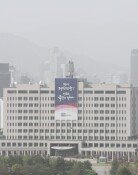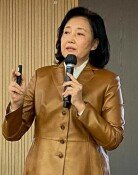Two different terms for brother-in-law
Two different terms for brother-in-law
Posted October. 02, 2017 07:33,
Updated October. 02, 2017 08:11
I just had to stop for a moment when I first saw a banner of a political party at a downtown crossroads. The banner encouraged citizens to talk about denuclearization instead of asking each other about university exams, job applications and marriage during this Chuseok holiday. The suggestion was at least original – to avoid topics that could hurt feelings of family members and relatives. But what if the new and highly-political topic – denuclearization – also becomes a wet blanket?
It is the so-called hwa-byeong (an ailment caused by resentment and anger) season in Korea. This ailment only affects Koreans and is prevalent around traditional holidays when family members get together. According to the National Health Insurance Service, the number of hwa-byeong patients rapidly increase in September and October around Chuseok, the Korean Thanksgiving Day, and holiday syndrome followed by hwa-byeong even results in a divorce. The number of divorces increased average 11.5% during Seollal (the Lunar New Year’s Day) and Chuseok holiday compared to the previous month over the past five years, Statistics Korea said. The holiday syndrome virus lives off conflicts between mother-in-law and daughter-in-law. A mother-in-law came up with a simple and memorable prescription to fight off this virus: Do not ask your daughter-in-law to do something you would not ask your own daughter to do.
Nevertheless, a wind of change is blowing in various sectors along with the rise of alpha-girl generation daughters-in-law. A recent post – Daughters-in-law should have the same rights as other family members – on the petition board of Cheong Wa Dae that called the way of addressing in-laws into question is appealing to many. It criticized the fact that paternal family is addressed by honorific titles (Ajubeonim, Seobangnim, Doryeonnim and Agassi), while maternal family is addressed by plain titles (Cheohyeong, Cheonam and Cheoje).
“This runs counter to the gender equality of 2017 and bounds to erode women’s self-esteem,” the petitioner said, calling for improvement. Others also asserted some other words such as Oega (mother’s home), Chinga (father’s home) and Bonga (parents’ home) also need improvement, stressing that inequality starts from language. President Moon Jae-in wished Korean citizens happy holidays on the official social network of Cheong Wa Dae, saying that he hopes this Thanksgiving would be joyful both for men and women. Everyone should be happy during the holiday, because that is why holidays exist. I wish everyone – without one side having to sacrifice – happy Chuseok.







